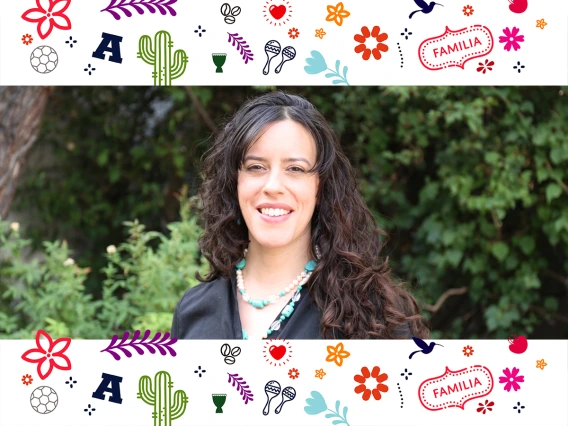
In celebration of Hispanic/Latinx Heritage Month, annually celebrated from Sept. 15 to Oct. 15, the College of Humanities is spotlighting faculty, staff and students. This week, meet Lillian Gorman, Xochilt María Montaño, Francisco Javier Fuentes and Gabrielle Yocupicio from the Spanish as a Heritage Language Program.
The Spanish as a Heritage Language Program at the University of Arizona has a long and distinguished history as one of the oldest and most comprehensive programs of its kind in the nation. For nearly 50 years, the Department of Spanish and Portuguese has been committed to serving U.S. Latinx students through Spanish as a Heritage Language courses.
The program offers multiple opportunities for students to expand their bilingual skills in a wide range of contexts, to learn more about Spanish-speaking cultural heritages in the United States and elsewhere, and to broaden their personal histories with cultural experiences of the U.S. Latinx population. Students are able to improve their written and oral expression, while they acquire a renewed pride in the language of their parents and grandparents.
Dr. Lillian Gorman, Director of the Spanish as a Heritage Language Program and Assistant Professor in the Department of Spanish and Portuguese:
“My Hispanic heritage is at the center of my teaching and research. My background as a Chicana from New Mexico allows me to understand the U.S as a Latinx space that pre-dates Anglo colonialism and Spanish as a U.S. language that pre-dates English. Spanish is not only the language of our heritage, but as Latinxs we have a right to reclaim and maintain Spanish in the present and future. My teaching and research reframes ‘heritage’ as a transformational concept that grounds Latinxs, our cultural practices, and our linguistic practices as part of the U.S. past, present, and future.”
Xochilt María Montaño, Spanish as a Heritage Language Program assistant and adjunct instructor:
“All of my teaching is influenced by my students’ heritage and cultural experience. I strive to make my students feel at home in my classroom by relating the teaching material to their experience as U.S. Hispanics/Latines. They are able to connect to the material this way, and more importantly, Hispanic and Latine students are able to find a community, something that they may be struggling to achieve on a wider scale on campus. This is truly what makes our program special and unique!”
Dr. Francisco Javier Fuentes, Spanish as a Heritage Language Program assistant and instructor:
“Hispanic Heritage month is a good first start. However, we need to move beyond just a month and find ways to honor Latinos all year long! We are here all year long not just for one month.”
Gabrielle Yocupicio, Spanish for Heritage Learners Program assistant and Ph.D. candidate and teaching assistant in Teaching, Learning & Sociocultural Studies:
“My identity as a Hispanic fronteriza has been shaped by being a member of a minoritized community in the U.S. I grew up surrounded by ideologies that viewed my language practices and identity as “deficient”, as being ni de aquí de ni de allá [not from here (U.S.) nor from there (Mexico)]. Taking pride in my ethnic and linguistic identity occurred after taking heritage language courses as an undergraduate student. My exposure to sociolinguistic topics, in a student-centered classroom, with other Hispanic students, impacted me deeply. This experience led me to devote myself to serving my own community of English-Spanish bilinguals who are reclaiming Spanish in higher education contexts. My teaching and research merge Hispanic sociolinguistics and language education through a social justice lens. Overall, I hope to support students’ bilingual practices and ethnolinguistic identities, as well as minority language maintenance in the U.S.”

